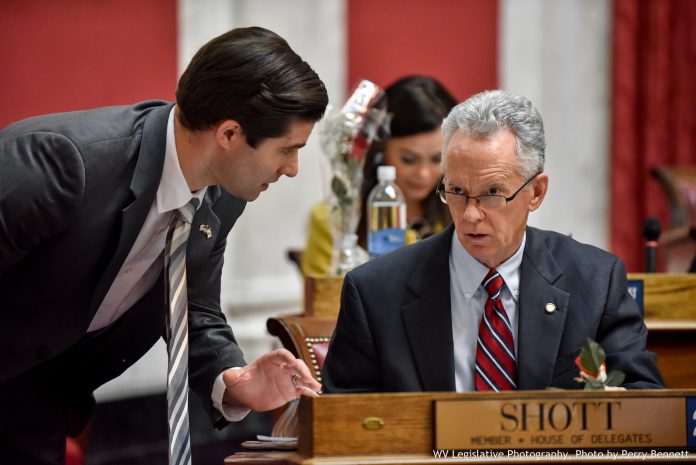Legislative Leadership Moving Forward on Reforming WV Tort Laws
Torts are the laws that govern civil lawsuits and revolve around who can held be liable and for how much. The Judiciary Committees of the House and Senate largely have dealt with moving these laws forward.
House Judiciary Chairman John Shott stated their goals in this reform. “We’re trying to identify features of the civil justice system that contribute to the concept that West Virginia isn’t friendly to businesses and economic transactions,” Shott said.
Though a wide variety of bills are aimed at reforming the civil court system, there are three bills that have been the primary areas of focus by the legislature thus far.
“We’re trying to fine tune laws to produce more certainty and objectivity in the system. People should be able to know what the rules corresponding decisions are in a clear manner,” said Shott, continuing his description of the tort reform bills.
House Bill 2010/ Senate Bill 10 is aiming to create non-partisan election of judges in the state of West Virginia. This would include all levels of the judicial system including West Virginia Supreme Court of Appeals, family court justices, circuit court judges, and magistrates.
“We are seeking to create fairness in the system. Judges should not be subjected to the political circus and removing parties helps to put fairness and objectivity in elections,” said Shott
The bill would create judicial divisions as well where each judge’s seat has its own individual race. Instead of running by county or district, judges would be assigned numbers and candidates would pick which seat to run against. The thought is to help good judges retain seats while judges that are doing less favorably may be removed without having to rely on party politics. The bill has passed the House and is currently within the Senate Judiciary Committee.
Another bill aimed at tort reform is House Bill 2011/ Senate Bill 2011. The bill would change requirements of employee’s knowledge of danger to employees relating to Workmen’s Compensation payment. Currently violation of any safety statue for workers is viable for payout, even if one is not aware of the law. The bill seeks to change the doctrine of liability to deliberate intent.
“The current law encourages claims that weren’t envisioned in the original intent of the law,” explained Shott. “Claims can be taken out even if the employee is being reasonably aware of worker’s safety. This leads to uncertainty in the system.”
The bill would require proof in a legal case that employer is deliberately placing an employee in an unsafe working condition in order to claim Workmen’s Compensation. Evidence cannot be circumstantial in nature and precautions included in the equipment manuals may also not be presented before the court. The bill has passed the House and is being sent to the Senate.
The final major bill of note so far this session has been House Bill 2002/ Senate Bill 2. This bill aims to change rewards for damages to be based upon principles of comparative fault.
“This would remove unfairness and uncertainty in assignment of fault. Defendants would no longer be held accountable for damages that were not their own,” Shott said.
The current doctrine under West Virginia law is joint liability. Under this doctrine, defendants in a case where fault is assigned to both will be held liable for the entirety of the damages if the other defendant is unable to pay. The new doctrine of comparative fault would hold defendants accountable only for their percentage of the fault.
Senate Judiciary Committee Chairman Charles Trump said “For a long time, it was all the other defendants fault. I believe we’ve struck a nice middle ground here.” He empathized with both sides stating “It’s hard because it’s a situation when a defendant can’t pay and what do you do? The plaintiff shouldn’t have to pay for his own damages but a defendant shouldn’t have to pay for damages that weren’t their own”
The bill has passed both the House and Senate. The Senate has asked the House to concur with its version of the bill, but thus far the House has refused and asked the Senate to recede from its version of the bill.
Both houses of the West Virginia Legislature are working to reform the civil court system. Shott and Trump are both working to create bills that will institute fairness and objectivity to the legal system. They will try to make West Virginia a state to do business in and be known as a strong legal system.

